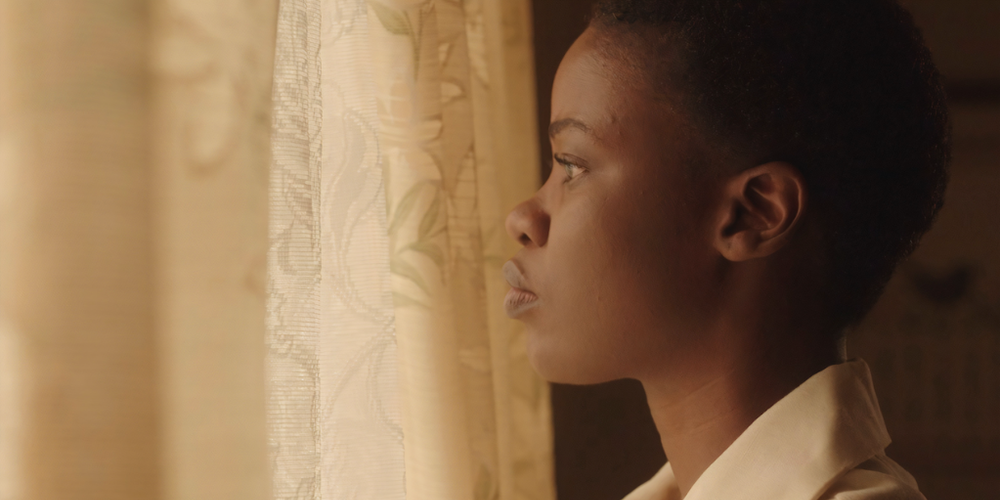As yet another February rolls around, Black media consumers are faced with a choice: Fully embrace the content strategy efforts of major brands in both traditional and social media, or offer those annual efforts a tacit handshake.
To be fair, Black History Month and the United States’ federal adoption of the Martin Luther King, Jr. holiday were too hard-fought for any of us to ignore their cultural significance. It could also be argued that corporate acknowledgment of the month-long celebration, while sometimes hollow, is still a conduit not only to Black art being recognized as American art, but also to much-needed resources being extended to Black artists when they need it most.
Broadly, Black filmmakers continue to lean into exploring the ever-cascading impacts of the African diaspora. The effects of slavery and Jim Crow have continued beyond technological, political, and societal advancements. For far too many Black people living in the United States, even now, every day is still, as author Douglas A. Blackmon once called it, “slavery by another name.”
Despite that hard reality, it could be argued that most dramatic short films by Black artists tend to focus on a specific common theme, regardless of the filmmakers’ region, experience, or budget: endurance. Whether combating systemic inequities in education, employment, income, housing, healthcare, or criminal justice, a large percentage of main characters in Black films simply carry on with their everyday lives. They are often stubbornly guided by perseverance, a sense of familial duty, and, above all, hope that their circumstances will one day change for the better – if not by some clandestine hand, then by their own actions.
It’s that endurance, that pressing forward, that makes these characters so compelling to watch, regardless of the world or time period they inhabit. Some may choose to outwardly fight oppression, risking their lives and limited freedom in the process. Others may decide to quietly trudge forward, keeping their heads down but their eyes wide open for new possibilities.
Many of these stories aren’t rooted in new themes; it’s the filmmakers’ unique forms of expression that make them feel distinctly fresh.
As streaming companies continue expanding VOD services for major motion pictures, independent films, and series – and as film festivals continue adjusting their programs to accommodate both attendees and filmmakers in a pandemic – it stands to reason that more high-quality, independent short films will find homes in the hallowed libraries of media giants than ever before.
For smaller institutions like the Black Women Film Network, offering one-day streaming festivals like their larger film festival counterparts is the best way to maximize viewership. Celebrating 25 years of uplifting Black women in film, the BWFN Short Film Festival will take place virtually on February 12. In partnership with Black woman-owned kweli.tv, the festival will feature 11 women-directed short films. Festival ticket holders will have access to the virtual festival for 24 hours.
As one of the largest media outlets in the world, WarnerMedia’s HBO Max recently debuted Black Voices, a new content hub with various films and series available to stream for free as part of HBO’s “More than a Month” campaign. They partnered with the 2021 American Black Film Festival to highlight short films made by and about Black people. It’s one of many initiatives by traditional Hollywood content engines to uplift Black talent and Black-centric stories. Of the five ABFF finalists now available for streaming at HBO Max, four films were written and directed by women — and serve as Women and Hollywood’s latest VOD picks.
It’s heartening to see major brands express a demonstrable understanding that Black voices, in all media, must be amplified year-round. As these ABFF finalist filmmakers have proven in their works, endurance in the face of adversity is only one part of the battle. The ultimate goal is achieving true freedom and equity.
Here are our VOD selections for February.
“Cracked” – Written and Directed by Lin Que Ayoung
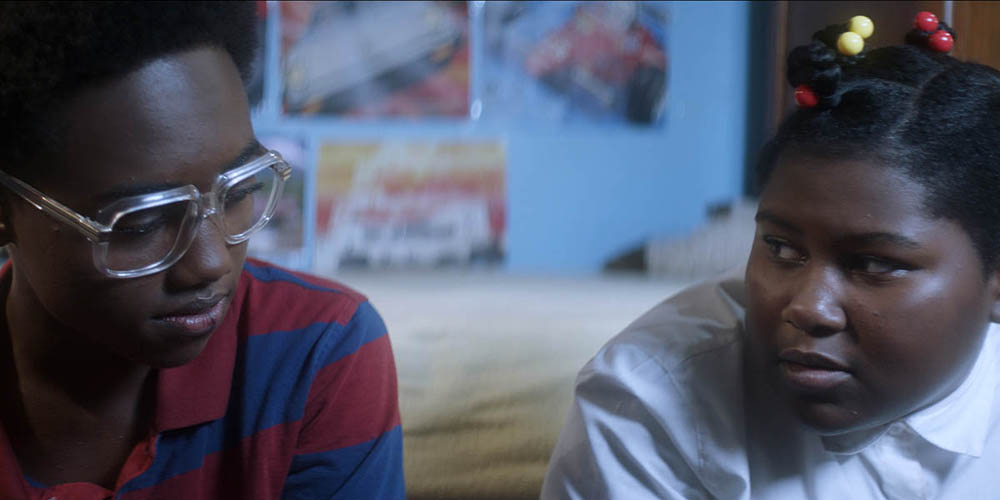
“Cracked”: HBO Max
In the summer of 1985 in Queens, New York City, Toya, a girl on the verge of adolescence, is the glue that holds her family together. Responsible and smart, she generally stays out of trouble and helps take care of the house for her parents.
As summer winds down and the school year begins, Toya finds herself falling in love for the first time with Poochy, a quirky, mysterious, young boy from her neighborhood. When Toya gains a desire for more independence, she suddenly finds herself away from the safety net of her family. After witnessing a pivotal moment in Poochy’s very personal life, Toya decides to confront her own traumatic past.
Toya and Poochy are sweet, innocent kids who were each forced to grow up too quickly because an adult in their lives failed them. In addition to economic insecurity that plagued many Black families during that time, they’re trapped in a cycle of secrecy and shame.
For Poochy, there are no adults who can step in to protect him from a dangerous lifestyle that will likely end badly for him down the road. Conversely, Toya’s parents very much love her, but are clearly distracted by the day-to-day burden of making ends meet for their large family.
Still, these young pre-teens find the joy where they can, and press forward in hope of a better life. In Toya’s case, rather than needing to be saved from a desperate situation, she simply must find the courage to voice her truth, even if it hurts — perhaps especially because it hurts.
In an interview with Bushwick Film Festival, writer-director Lin Que Ayoung explained that “Cracked” is based on her own childhood experiences. “As a woman, I believe it is important to own our anger,” she said. “Anger and love can feel like they’re on two opposite sides of the spectrum, but when someone loves you, they give you the space to process your anger.”
“Pure” – Written and Directed by Natalie Jasmine Harris
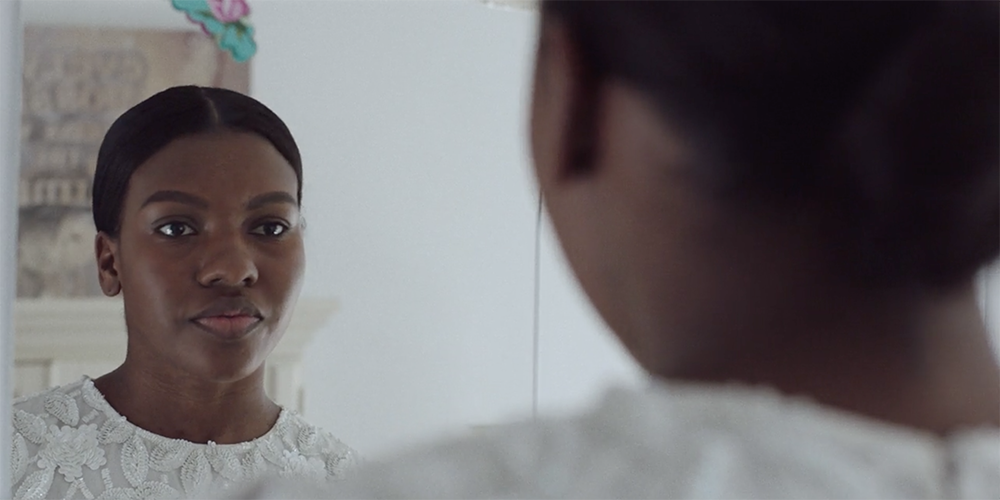
“Pure”: HBO Max
Trapped in a binary world of Black wealth and tradition, Celeste struggles to reconcile her queer identity with the notion of purity. On the night before her cotillion ball, with her best friend Amir by her side, she bemoans the constraints of their world while exploring her own sense of style.
Though she seems shy and reserved, Celeste has a gift for spoken word. Despite her quiet presence earlier among her fellow debutantes, she now freely speaks her truth to a crowd of strangers who understand both her pain and pride.
A chance romantic encounter forces Celeste to ask herself tough questions about the kind of person she wants to be and the kind of life she wants to live.
What’s unique about Celeste’s story is that we never see her interact with her parents. Though it’s understood that participating in this family tradition is non-negotiable, it’s not clear what specific type of relationship she has with the elder women in her life.
This mystery actually enhances the story, by placing her family in a decidedly neutral position. They’re not presented as total villains, nor are they redeemed by a sudden epiphany. It further centers Celeste in her coming out journey. Her parents’ feelings about, or understanding of, her identity are made quietly irrelevant.
Celeste is the only one who needs to come to terms with who she is. The rest will hopefully fall into place as her process continues. And along the way, she can find solace in knowing that there’s a community right at her fingertips, who is proudly waiting to accept her with open arms. There’s hope for Celeste in that realization, but also long sought-after relief.
In an interview with The Queer Review, writer-director Natalie Jasmine Harris revealed how the premise for “Pure” was inspired by her own history with cotillion balls. “I was exhausted from performing an inauthentic version of myself to the world,” she said. “By reimagining my story, I hope to make at least one person feel less alone. For young Black queer girls in particular, I want them to know that their stories matter and believe that self-love and joy are possible to find.”
“The Snakes” – Written and Directed by Michelle Beck
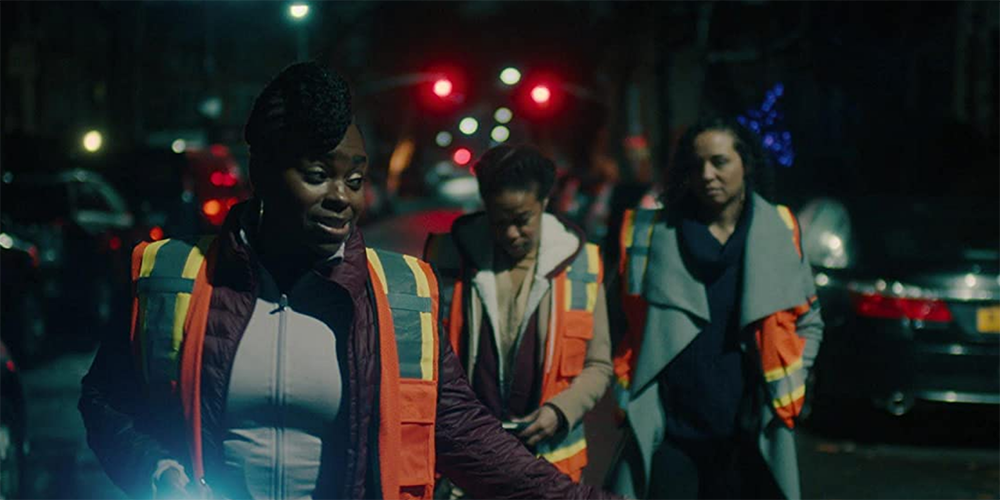
“The Snakes”: HBO Max
In an alternate dystopian future where Roe v. Wade has been overturned, Erica processes her trauma and depression through violent fantasies.
It’s a dangerous world. Women are no longer safe anywhere, let alone at night. After a local woman is attacked, a team of Black women form a neighborhood watch task force that patrols the streets. In addition to weakened police safety services where they’re desperately needed, free speech has also been curtailed.
As her rage reaches a crescendo, Erica decides she’s had enough of living in abject terror, once and for all.
Erica’s journey is reminiscent of a hypothetical pre-Gilead time period in “The Handmaid’s Tale.” Just enough of her old social norms are familiar that more people haven’t yet taken to joining a full-on uprising. The media relays stories of oppressed women with a distinct lack of urgency, as if a woman being criminally charged for obtaining an abortion should be considered commonplace.
Given America’s current nationwide war on reproductive rights, and the way states have successfully managed to initiate the complete backslide into a pre-Roe v. Wade reality, it’s chilling to see how the characters in “The Snakes” are left with few options for true freedom, let alone basic safety.
While attending the 2021 Martha’s Vineyard Film Festival, writer-director Michelle Beck described her goals as a filmmaker to “change the narrative, especially for a Black woman.”
The notion of portraying women as cutthroat vigilantes in American film and television is still relatively new, at least compared with the long history of men playing such complex roles. Rarer still are contemporary stories where Black women seek justice either on their own terms or by resorting to violence.
“I really just felt it was important to investigate Black women’s rage,” Beck said. “I feel like I have a lot of rage inside me. I know a lot of Black women who have rage inside them. And I wanted to create something that was complex, complicated, nuanced, and just had a lot of fodder for discussion.”
“When the Sun Sets” – Written and Directed by Phumi Morare
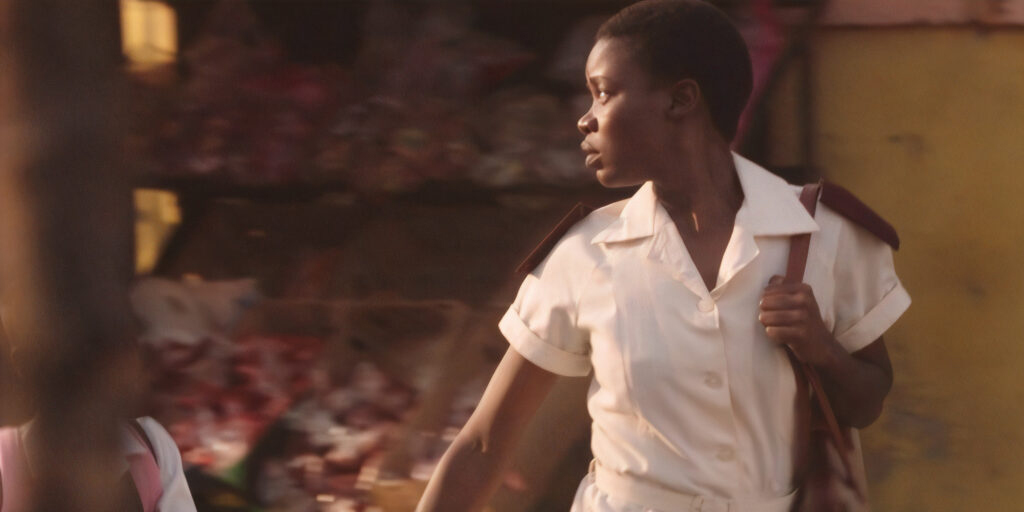
“When the Sun Sets”: HBO Max
In chaotic South Africa, 1985, the Apartheid government struggles to contain its restless citizens. Through acts of legalized torture, inhumane detainment, and outright murder, white-minority forces seek to quell a rising movement of freedom fighters.
Lerato, a young Black nurse who is the head of her household, fears for her little brother Anele’s life as he finds himself drawn to the mission on his nation’s behalf. One morning, a hasty confrontation ensues. They don’t see eye-to-eye on the work Anele is doing, and unfortunately, there doesn’t seem to be enough time for them to talk it out before he’s back at it again, away from the safety of their home.
When faced with a horrific situation, Lerato must make a split-second decision that will change her life forever.
Many films have been made about war-torn regions of Africa, and certainly about Apartheid. This is a quiet, contemplative exploration of a single day in the life of a young woman just barely holding it together. Lerato is lonely, pensive, and seemingly timid.
Gender norms also make it difficult for her to guide or claim parental authority over her brother, even though it’s clear that she’s his guardian. Anele is a young man desperate to prove himself, and Lerato’s wisdom is easily ignored.
Lerato’s timidity is a symptom of the cancer of white supremacy. And though Anele seems to resent her for it, her caution is justified. One thing is certain, however: Lerato does hope for a better future. Her ability to withstand continuous trauma is not a badge anyone would wear lightly, yet it’s one that thousands of South African women from this era undoubtedly brandished with pride.
As writer-director Phumi Morare recently told GoldDerby, “When the Sun Sets” — also known as “Lakutshon’ Ilanga” — is inspired by true events that transpired for her mother and uncle. She explained that she only learned of this transformative family story several years ago. “It’s something that’s sort of difficult to really fathom,” she said. “When I was working out what I wanted to do for my thesis at university, my professor said, ‘Write about the things that haunt you.’ And this was one of them.”
